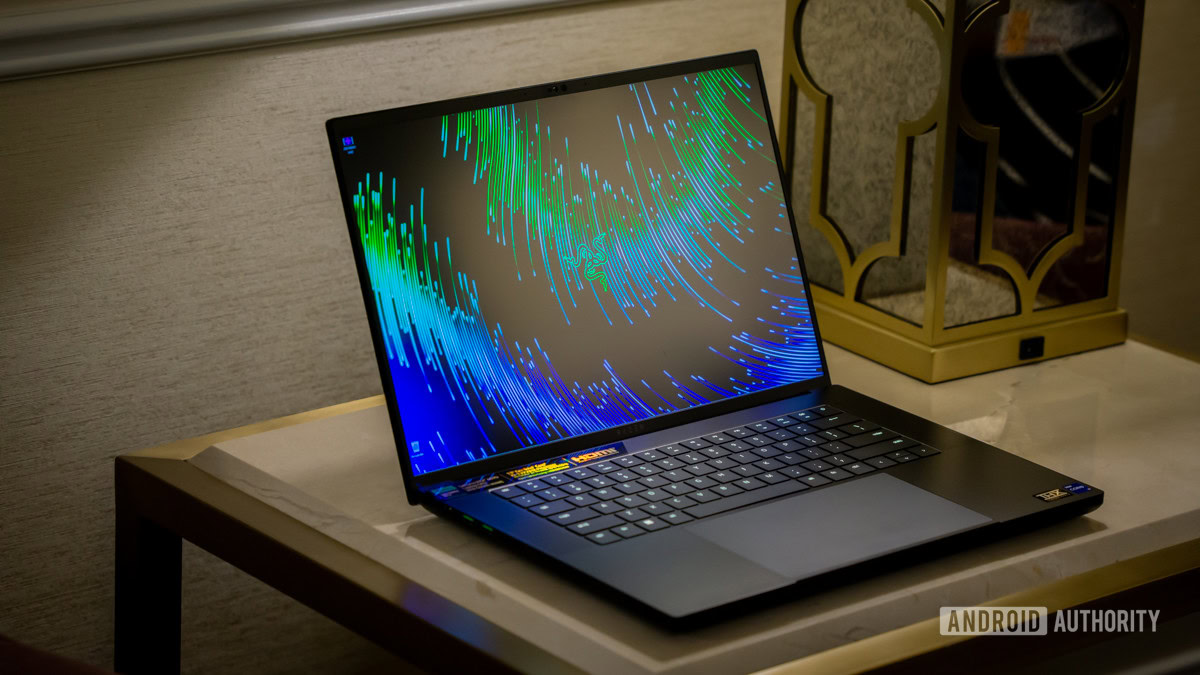The Blue Origin Debacle: A Deeper Dive Into Bezos' Space Program Shortcomings

Table of Contents
Financial Instability and Funding Challenges
Blue Origin's funding model differs significantly from its main competitor, SpaceX. While SpaceX secured substantial private investment early on, fostering rapid growth and innovation, Blue Origin has heavily relied on Jeff Bezos' personal wealth. This creates a significant vulnerability, limiting the company's ability to scale operations independently.
- Lack of significant private investment: Compared to SpaceX's billions in venture capital and private equity funding, Blue Origin has attracted significantly less external investment. This dependence on a single source of funding restricts its growth potential.
- Heavy reliance on Bezos' personal wealth: Bezos' vast fortune has undeniably fueled Blue Origin's development, but this creates a precarious situation. Changes in his personal wealth or priorities could severely impact the company's future.
- Slow return on investment and lack of profitable ventures: Unlike SpaceX, which has secured lucrative contracts with NASA and commercial clients, Blue Origin has struggled to generate substantial revenue streams. The lack of profitable ventures jeopardizes its long-term financial sustainability.
- Impact of the overall economic climate: The current economic downturn further exacerbates Blue Origin's financial challenges, making it harder to secure additional funding or attract new investors.
The long-term financial sustainability of Blue Origin is questionable without a significant shift in its funding strategy and the development of profitable commercial ventures.
Technological Setbacks and Development Delays
Blue Origin has experienced notable delays and setbacks in its key projects, impacting its competitive standing within the burgeoning space industry.
- Repeated delays in New Glenn's launch: The fully reusable New Glenn orbital rocket launch has been repeatedly postponed, significantly hindering Blue Origin's ability to compete in the commercial launch market.
- Suborbital flights' limited scientific and commercial impact: While New Shepard suborbital flights have been successful, their scientific and commercial value remains limited compared to SpaceX's reusable Falcon 9, which facilitates more frequent and impactful missions.
- Comparison with SpaceX's faster technological advancements: SpaceX's rapid technological advancements, including its reusable rocket technology and Starlink satellite constellation, have left Blue Origin lagging behind in several key areas.
- Safety concerns and incidents: While Blue Origin maintains a strong safety record, any incidents, however minor, can damage public trust and investor confidence, further delaying progress.
These delays significantly impact Blue Origin's overall competitiveness, making it harder to attract customers and secure contracts in the increasingly crowded space launch market.
Lack of Clear Commercial Strategy and Market Penetration
Blue Origin's business model and market position are significantly weaker than SpaceX's.
- Limited commercial contracts: Compared to SpaceX's extensive portfolio of commercial and government contracts, Blue Origin has secured significantly fewer contracts, limiting its revenue generation capacity.
- Competition from established players: Blue Origin faces intense competition from established players like SpaceX, as well as emerging new space companies.
- Difficulties in attracting and retaining talent: Attracting and retaining top engineering and scientific talent is crucial for success in the space industry. Blue Origin's struggles in this area contribute to its slower progress.
- Absence of a strong brand presence and marketing strategy: Unlike SpaceX, which has cultivated a strong and positive brand image, Blue Origin's marketing efforts have been less impactful, hindering its ability to attract customers and investors.
The potential for future growth and market dominance for Blue Origin requires a significant overhaul of its commercial strategy and a more aggressive approach to market penetration.
The Human Spaceflight Race: Falling Behind SpaceX
SpaceX has made significant strides in human spaceflight, securing crucial NASA contracts for crew transportation to the International Space Station and developing ambitious plans for lunar and Martian exploration. Blue Origin's progress in human spaceflight has been significantly slower, lacking the same level of government contracts and private partnerships. Furthermore, SpaceX’s advancements in reusable launch vehicle technology provide a clear competitive advantage in cost-effectiveness and mission frequency, areas where Blue Origin has yet to achieve comparable success.
Public Relations and Negative Press
Blue Origin has faced several controversies, including legal battles and internal conflicts, leading to negative media coverage that has impacted its public perception.
- Negative media coverage and its impact on public perception: Negative press surrounding legal disputes and internal issues has damaged Blue Origin's public image and brand reputation.
- Comparison of public image with SpaceX's more positive brand perception: SpaceX has cultivated a much more positive and exciting public image, contrasting sharply with Blue Origin's comparatively muted and occasionally controversial profile.
- Impact of controversies on investor confidence: Negative publicity and controversies can erode investor confidence, making it more challenging to secure funding for future projects.
The accumulation of negative publicity significantly impacts Blue Origin's long-term prospects, creating a barrier to attracting investors, partners, and customers.
Conclusion
The "Blue Origin Debacle" highlights several key challenges facing the company: significant financial instability, persistent technological setbacks, a lack of a robust commercial strategy, lagging human spaceflight capabilities, and persistent negative public relations. These shortcomings have significant implications for the future of Blue Origin and the broader space industry, raising questions about its long-term viability and its capacity to compete effectively with more established players. Further investigation into these issues is crucial to understanding the future of Blue Origin and the broader landscape of commercial spaceflight. Continue to follow the developments surrounding Blue Origin and other space programs to stay informed about the ever-evolving race for space.

Featured Posts
-
 Price Gouging Allegations Surface In La Following Devastating Fires
Apr 22, 2025
Price Gouging Allegations Surface In La Following Devastating Fires
Apr 22, 2025 -
 Major Canadian Bread Price Fixing Case 500 Million Settlement Hearing In May
Apr 22, 2025
Major Canadian Bread Price Fixing Case 500 Million Settlement Hearing In May
Apr 22, 2025 -
 Razer Blade 16 2025 Review Ultra Settings On A Thin Laptop High Price
Apr 22, 2025
Razer Blade 16 2025 Review Ultra Settings On A Thin Laptop High Price
Apr 22, 2025 -
 Putin Ends Ukraine Truce Renewed Conflict Erupts
Apr 22, 2025
Putin Ends Ukraine Truce Renewed Conflict Erupts
Apr 22, 2025 -
 Alterya Acquired By Chainalysis A Strategic Move In Blockchain And Ai
Apr 22, 2025
Alterya Acquired By Chainalysis A Strategic Move In Blockchain And Ai
Apr 22, 2025
